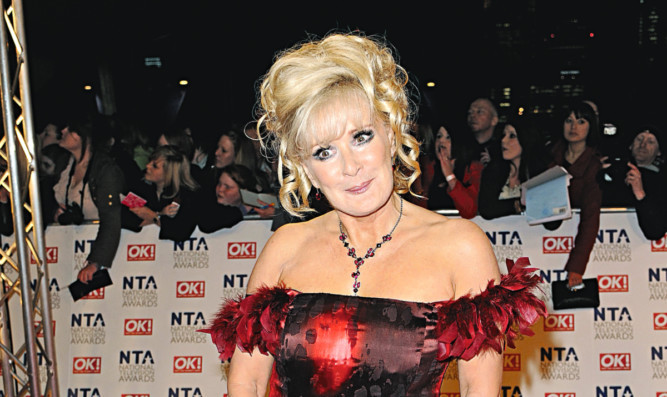
I think the latest campaign to break down barriers and get people talking about mental health issues is hugely admirable and has led to some surprising and very moving stories from sufferers including well-known people like Corrie star Beverley Callard.
Beverley, who plays feisty Liz mcDonald in the soap, has been very open about her battle with depression in the past.
It was heartbreaking to hear her describe how some people, who she considered to be good friends, “distanced themselves” from her when she was mentally ill. One told her that she couldn’t see her for a while because Beverly wasn’t being herself and wasn’t good to be around.
Although that must have been shattering to hear, at least Beverly actually had that conversation with her friend. Far too many people with mental health problems are too scared to talk to their pals and family about how they are feeling.
That’s why “Time To Change” are trying to to encourage people to talk, even just for five minutes a day, about how they are really feeling and to be open and honest with the people they love. It’s not an easy thing to do but I think it is vital.
I’ve interviewed many people over the years who have had problems in the past, or who are actually dealing with a mental illness and it can be very lonely and isolating.
We have all the sympathy in the world for someone with a broken leg, or who suffers with arthritis or is generally poorly.
There is still, however, a tendency for people to say “pull yourself together” if someone is feeling desperate and struggling with a mental illness. It’s very unfair because something like depression can hit anyone at any time.
Winston Churchill famously was a sufferer and Beverley’s colleague Anne Kirkbride, who played Deirdre Barlow and sadly passed away last month, had her own battle with the illness.
Like so many other people, she also felt guilty because she had a great job, a lovely husband and a good life. She realised how lucky she was and yet she still felt depressed, but it wasn’t her fault.
People deal with mental illness in many different ways. Some try and soldier on which is never a good idea.
Others are prescribed anti-depressants and other medication, go for therapy and some, like TV presenter Trisha Goddard, use exercise to help them feel better.
The main thing is to seek help as soon as possible and not to feel that you might be stigmatised or “punished” for being mentally ill.
There is still a reluctance for people to go to their GPs to seek help because they are worried that details of their illness will appear on their employment record and they believe it could jeopardise their chances of promotion or even lead to them being sacked.
It’s a horrible way to live and extremely unfair.
I think it’s hugely important that we all show a bit more understanding towards people who are struggling with their mental health and not be like Beverly Callard’s friend and run away from those who need our help.

Enjoy the convenience of having The Sunday Post delivered as a digital ePaper straight to your smartphone, tablet or computer.
Subscribe for only £5.49 a month and enjoy all the benefits of the printed paper as a digital replica.
Subscribe